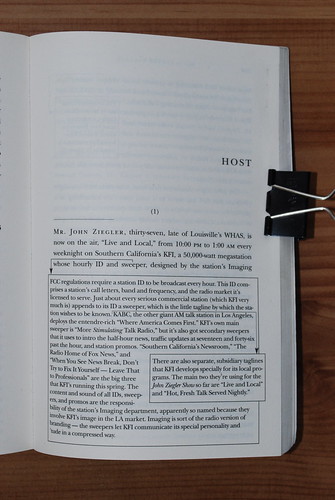 This is my entry (my twelfth overall...time flies when you have fun), in the ever pertinent Literary Blog Hop, hosted by the equally ever pertinent Blue Bookcase. Today, the question is strangely Academic and for this very reason, fascinating:
This is my entry (my twelfth overall...time flies when you have fun), in the ever pertinent Literary Blog Hop, hosted by the equally ever pertinent Blue Bookcase. Today, the question is strangely Academic and for this very reason, fascinating:Can literature be funny? If so, what is your favorite humorous literary book?
This question is more than meets the eye. The easy answer is to say: "Of course literature can be funny, it can be hilarious. It's a hornet nest for satire". Claiming satire in literary discussion is a "get out of jail free" card. If you look hard enough (and interpret hard enough also), you can find satire in every literary classic, from Don Quixote to American Psycho, which are both self-explanatory attempts at denunciation through the use of satire. Cervantes and Ellis are exagerating the traits of their characters and the world they live in, to the point of absurdity. Quixote fights windmills because he starved for relevance and Patrick Bateman kills a co-worker who has a better fashion sense than him. Both very absurd scenes, but in both cases, I don't find it particularly funny.I mean, I understand the satire, but what I want to stress here is that satire can prove a point without being necessarily humorous. I thought Catch-22 was pretty damn charming, but did the satire made me laugh? No. That leaves us with the same question: where does humor lies in literature? Does it exist at all?
It does. I do think that there are forms of humor, devoid of overbearing social intent and put there for the sole purpose of making you laugh. I think that to laugh in books, you have to address the medium. In has a metafictional nature. For example, in David Foster Wallace's essay Big Red Son, he covers a pornographic award ceremony the Adult Video News Awards. He addresses to the reader his profound awkwardness at accomplishing his task in many delightful moments. In one passage, he's standing at the urinal with the devouring envy to peek over his neighbor's stall to see if his engine is of "pornographic proportions" if I would say. Even if he casts himself as a character of his own story (his usual M.O), Wallace addresses his reader with hilarious apartés. Throughout the forty-something pages essay, the writing condition is superposed to the reality of the pornographic industry and it's really funny. Well for me, at least.
A more standard example would be the works of Kurt Vonnegut (who, to my great relief, seems to be a darling of the blogosphere). The character of Kilgore Trout, who goes from novel to novel is a way for Vonnegut to make editoral statement about his work and the human condition he's laboring so hard to describe. I find those very funny. But truth is, humor is the most subjective thing there is. Some people are completely devoid of it, while others see jokes at every page. Most people laugh at different passages also. Truth is, literature doesn't have much immediacy in terms of medium. It doesn't give you the image the way cinema or television does. You have to construct it from the page, which makes for a delay that can make much humor unfunny. So my final say will be this: Humor is books depend on the reader. It is paramount to reception. It's something you have to construct from the page, from your background and your twisted sense of analysis. But it's there. It just triggers differently for everyone.
